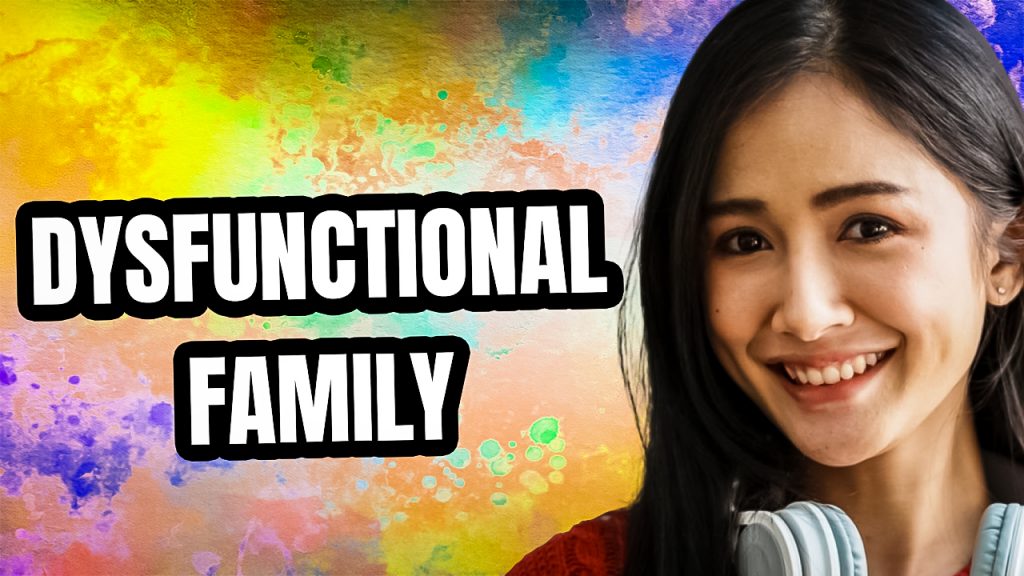What is a Dysfunctional Family?

A dysfunctional family is a household where members engage in patterns of behavior that
impair healthy functioning and growth. It is a group of people who, despite living together, have
difficulties in communicating, expressing emotions, and establishing healthy boundaries. Such a
family may have a variety of issues, including neglect, abuse, addiction, mental illness, or other
forms of dysfunction. These issues can have long-lasting effects on children and adults alike,
leading to emotional, social, and physical problems that persist throughout their lives.
There are several signs that a family is dysfunctional, and these include poor communication, a
lack of emotional support, and a lack of intimacy. Members of such families may avoid
expressing their feelings or thoughts to each other, leading to a sense of detachment and
isolation. They may also fail to provide adequate emotional support to each other, leading to a
lack of trust and a sense of loneliness. The family may be overly focused on maintaining
appearances or maintaining strict control over family members’ behavior, leading to feelings of
shame and guilt.
Dysfunctional families can also experience difficulty setting boundaries, leading to a lack of
respect and an inability to establish healthy relationships. Members may struggle with
codependency, enmeshment, or enabling behaviors that prevent them from growing and
developing individually. Such families may also engage in frequent arguments, often over trivial
issues, and may fail to resolve conflicts in a healthy manner.
One of the most common issues that a dysfunctional family may face is addiction. Substance
abuse, alcoholism, or other forms of addiction can cause significant disruptions in the family
dynamic, leading to physical and emotional abuse, neglect, and isolation. Family members may
engage in enabling behaviors, such as covering up for the addicted person, ignoring the
problem, or making excuses for their behavior. Addiction can lead to financial problems, legal
issues, and social isolation, making it difficult for members to establish healthy relationships
outside of the family.
Another common issue in a dysfunctional family is mental illness. Mental health problems can
affect any member of the family, including parents, siblings, and children. Mental illness can
cause significant disruptions in daily life, including difficulty functioning at school or work, trouble
sleeping, or a lack of motivation. Family members may struggle to understand or cope with the
affected person’s behavior, leading to feelings of frustration, anger, or guilt. Mental illness can
also lead to social isolation, as individuals may feel too ashamed or embarrassed to seek help
or interact with others.
In some cases, a dysfunctional family may be characterized by neglect or abuse. Neglect can
take many forms, including physical, emotional, or educational neglect. Children may be left
alone for long periods, without adequate food, shelter, or supervision. Emotional neglect may
involve a lack of emotional support, attention, or validation. Physical abuse may involve hitting,
slapping, or other forms of violence. Sexual abuse may also occur, often involving inappropriate touching or other forms of sexual contact. Such behaviors can have significant long-term effects
on children and can lead to physical, emotional, and psychological problems later in life.
There are many factors that can contribute to a dysfunctional family, including poverty, trauma,
and cultural or social factors. Poverty can lead to a lack of resources, including access to
education, healthcare, or healthy food. This can lead to feelings of hopelessness, frustration,
and despair, leading to unhealthy coping mechanisms such as addiction or violence. Trauma,
including abuse or neglect, can lead to long-lasting psychological problems, including
post-traumatic stress disorder, anxiety, or depression. Cultural or social factors, including
expectations about gender roles or family responsibilities, can also contribute to dysfunction
within the family.
It is important to note that dysfunction within a family is not necessarily permanent, and there
are steps that families can take to improve their relationships and establish healthier patterns of
behavior. Seeking therapy or counseling canbe an effective way to address issues within the
family and learn healthy communication and coping skills. Family therapy can also help families
work together to establish healthy boundaries, resolve conflicts, and build stronger relationships.
It is important for family members to acknowledge the dysfunction within the family and be
willing to work together to make positive changes.
Individuals who have grown up in dysfunctional families may also benefit from therapy to
address any emotional or psychological problems that may have developed as a result of their
experiences. They may need to learn healthy coping mechanisms, establish healthy
boundaries, and work through any unresolved issues from their past.
In conclusion, a dysfunctional family is a household where members engage in patterns of
behavior that impair healthy functioning and growth. Dysfunctional families can experience a
variety of issues, including poor communication, a lack of emotional support, addiction, mental
illness, neglect, and abuse. Such issues can have long-lasting effects on children and adults
alike, leading to emotional, social, and physical problems that persist throughout their lives.
However, it is important to note that dysfunction within a family is not necessarily permanent,
and there are steps that families can take to improve their relationships and establish healthier
patterns of behavior. Seeking therapy or counseling can be an effective way to address issues
within the family and learn healthy communication and coping skills.
This Post is Brought To You By BetterHelp